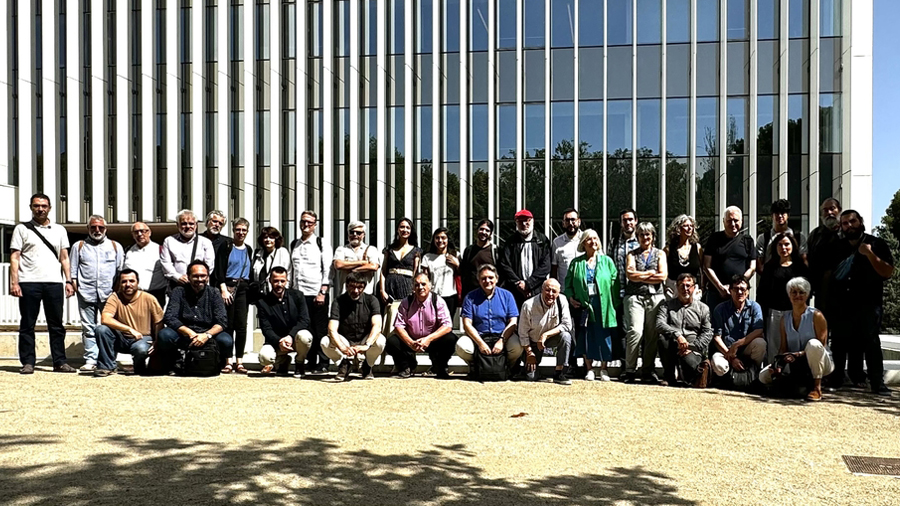The UAB, through its CORE in Cultural Heritage, is one of the institutions behind CLARIAH-CAT, a new strategic network of digital humanities being launched in Catalonia. The network was established at the Barcelona Supercomputing Center - Centro Nacional de Supercomputación (BSC-CNS), which also forms part of the project.

CLARIAH-CAT aims to facilitate the access and participation of researchers to European digital infrastructures such as DARIAH, CLARIN and SSHOC, and to strengthen collaborations between researchers and institutions at national and international level.
The conference, held at the BSC-CNS on 26 June with the collaboration of the UAB, brought together more than 50 researchers from Catalonia, as well as representatives of the public administration, with a common interest in the application of technology and computing in the digital arts and humanities.
During the morning of the day the network was founded, a presentation was made of European digital infrastructures by German Rigau, national coordinator of CLARIN and DARIAH and coordinator of CLARIAH-ES, and by Mercè Crosas, director of the Social Sciences and Computational Humanities section at the BSC.
The afternoon session was devoted to the co-creation of the future strategic network of digital humanities in working groups coordinated by the organisers: Maite Melero, coordinator of the Machine Translation group and representative of CLARIAH-ES at the BSC; Clara Guasch, coordinator of Research in the Social Sciences and Computational Humanities at the BSC; Oriol Vicente, coordinator of the CORE in Cultural Heritage at the UAB; and Juan Antonio Barceló, lecturer in the Department of Prehistory at the UAB and director of the University's Quantitative Archaeology Laboratory.
The founding session served as a starting point to define the objectives, governance and roadmap of this new strategic network in Catalonia.






